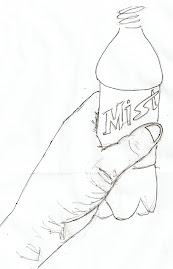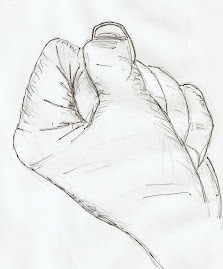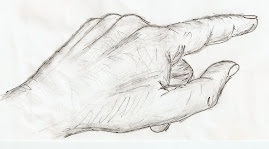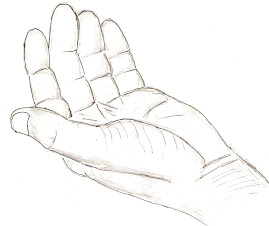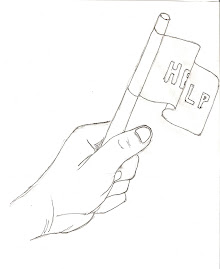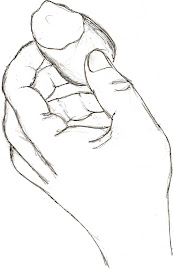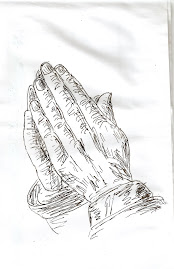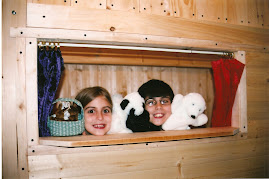Wednesday, December 26, 2012
Working Kids
The blinds were drawn more than halfway across the windows in Bobby’s fifth floor room, but his mom and dad could see his features clearly. He was bald now, and pale. He’d lost a great deal of weight over the past three months, not counting the sudden change when the surgeon took his left leg. Although he’d been fitted with a very good artificial one—he even learned to walk with it—his disease had already spread too far to expect him to live much more than another few days. His breathing was shallow and labored, and as they watched his chest rise and fall ever so slightly they glanced at each other. They stood on either side of his bed, heads slightly bowed except when they could bear to look up at the fatigue and grief on each other’s face.
On imperceptible signals, those magic exchanges known only to couples who’ve loved through thick and thin, they occasionally sat down next to each other and murmured softly how tragic it was to lose someone at the age of eight. He had been a wonderful son, energetic and caring. There was no scout troop within easy reach of their house, but that didn’t stop Bobby from adopting many of their ways. They lived on a busy street and he could often be seen helping Mrs. Crandall cross it with her converted baby buggy shopping cart loaded down with discount canned goods.
He was a curly-haired boy with freckles, one for every good deed, it seemed. His mom rarely asked him to help with household chores because he was always emptying the trash or setting the table before such things even emerged in her thoughts. He found the lawnmower handle a bit high for comfort, but as soon as his dad felt satisfied that he could tackle the lawn safely he turned Bobby loose on that as well. His folks had always felt terribly fortunate to have such a good kid, one destined to be in a helping profession, they imagined. They’d wanted a second child too, but found that it was not to be.
The sun set in awesome shades of crimson and orange without hardly being noticed, such was their preoccupation with the dying boy, yet as the room slowly darkened his features appeared to grow more distinct. His gentle brow, his nose still apparently ready to sniff out adventure or someone to help, his well-formed chin, almost ready ahead of time to express teenage assertiveness—these characteristics presented the profile of a young fellow ready for life even though life was draining from him.
His parents kept a vigil every night until the wee hours when they could no longer fight off sleep. Then they kissed him lightly on the forehead and walked slowly down the quiet corridor, hand in hand, barely aware of the various pieces of hospital equipment parked along the walls.
Home didn’t feel as much like home as it had over the past ten years. Dad went to his regular job in the morning, far too early to be completely awake. Mom rose as usual to make his breakfast and to do a few household chores. She did it rather mechanically, just as her husband did his at the UPS loading dock. Nothing felt the same. Nothing had the same smell of promise, of the future. The sweetest part of their day was usually when he came home from work and they held hands for a time in silent prayer. After soup and a sandwich and two cups of strong coffee, they plodded out to the car and returned to the hospital. It had been like this every day for several weeks.
It was hard not to hope for something different, something encouraging when they entered his room. It was always the same: chart hanging at the foot of Bobby’s bed, IVs in both arms, incessantly beeping monitors, blinds drawn nearly closed and once in awhile an attentive nurse in green scrubs nodding somberly as she left them to be alone with him. Nobody smiled.
While the nights dragged by, they shared bits and pieces of the things the three of them had done together, for some reason moving gradually from scrapbook events such as vacation trips, little league games and Sunday drives to visit Bobby’s cousins, then more recently to the small things so easily taken for granted. At bedtime his dad used to say, “Good night, son. When I get home tomorrow we’ll see if we can finish that birdhouse.” Or it might have been something about the little plot of ground designated as his garden spot. His mother often thanked him for his help after school each day, then in the evening smiled happily as her boy in pajamas planted a kiss on one cheek. They hardly sensed the irony of passing back and forth these reminiscences which enabled them to remain awake longer at Bobby’s bedside and yet at the same time added regular doses of sadness to their watch. I miss that kiss so much, thought his mom.
Once in a while they broke the stiffness which sets in when immobile for such a long time by walking around the bed, or simply moving their chair to a different vantage point. They had observed him from every angle possible by now, knew the sound of his shallow breathing and on many occasions noted when his eyes told of dream sleep. His mouth never opened and his lips didn’t move. He was in no obvious pain as the medication over recent weeks had been continually adjusted to keep him comfortable. Unfortunately, the drugs also kept him out of reach of his parents, desperate for a few moments of dialogue with him, or at least to see his eyes open and trained on them.
This night, about two in the morning, Dad had dozed off and was slumped in his chair, leaving Mom alone to stare blankly at her sleeping son. At such an hour she was grateful for the dim light emitted from the fixture at the head of the bed and a number of times had found herself waking with a jerk after a few minutes of troubled sleep. At such moments she rose quickly to look closely into Bobby’s face to see if she had missed something. On this occasion his eyelids fluttered almost imperceptibly and his lips parted ever so slightly. They were moving, as if in furtive, whispered speech.
“Bobby,” she said almost in a sigh. “Are you trying to tell me something?” The boy did not respond, but appeared to be managing a secret conversation with someone she could not see. She pulled her chair over to the bed to watch closely from a better position. He seemed to be having a very engaging dream.
Who are you? inquired the sleeping youngster.
Thomas, responded his invisible visitor.
Are you eight too?
Well, really, much, much older than that, but I was eight years old when I got this job.
Job? What job? And where did you come from?
I just came from another assignment, quite a long way from here.
Assignment? I don’t understand. Do you mean that you’re working right now?
That’s right, Bobby, said Thomas. And this work is so satisfying that I’m going to do it forever.
That’s a long time.
That’s true here in your old life, but….
Bobby interrupted…my old life? What do you mean?
Well, when you’re through with that body you’re wearing you’ll be ready for something entirely new. An important job.
Like what? Thomas had Bobby’s attention.
I don’t actually know, but I’m sure it will be something that fits you, something you’ll enjoy completely.
Wow! You sure make it sound good.
That’s because it is good. I love my job.
So what is your job, asked an enthused Bobby.
I guess you could say I’m a recruiter. I visit young people your age in order to interest them in their new assignment. Thomas didn’t believe in holding back.
Now you’ve got me wondering why you’re here now. Are you trying to recruit me?
You hit it, Bobby. We recruiters know when someone is almost finished with his old life and about ready for a new one. We want you to know that the transition is as smooth as vanilla custard and quick as a blink.
Bobby’s mom couldn’t decide for a few moments whether to summon the nurse or wake her husband, but at length knew that John would want to be in on this subtle change in their boy. He would also know what to do. “John,” she whispered.
He woke with a start and rubbed his eyes. “What is it, Mary?”
“It’s Bobby. Look.”
He got to his feet somewhat unsteadily and only half awake. At Bobby’s bedside he leaned over and stared. “I wonder what it means. Maybe we’d better get the nurse.”
Bobby had an understandable question. But if you’re a recruiter why don’t you know what my job will be? And are those wings I see on your back?
Thomas stifled a laugh. Yeah, they’re wings, but really they’re only for show. We don’t need them to get around. People more or less expect to see wings and we don’t want to disappoint them. Oh, and your question about your job is a fair one, but someone a lot smarter than me will decide what that’s going to be.
And you say this is going to happen pretty soon?
I think very soon. Your parents will be crying their eyes out, but their pain will slowly go away. After while they’ll begin thinking about where you are and see that it’s best for you.
I’ll sure miss them.
Not as much as you think. You’ll be able to look in on them when you’re not too busy.
John turned toward the door and took two steps before the monitors suddenly changed sounds. One of them switched to a steady tone. Mary screamed and John rushed out to get the nurse. She was at bedside in the twinkling of an eye, saw immediately what the monitors were telling her and called for the doctor.
He appeared and after just a few moments shook his head, saying softly, “I’m sorry.”
Mary put her face in her cupped hands and John wrapped his arms around her. She shuddered and sobbed as he gripped her tighter. A few moments passed and she looked into his strong and open countenance. As he gazed compassionately back at her he was struck by the sudden look of surprise on her face. She smiled faintly through her tears. John said, “What is it, Mary?”
“I just felt a familiar kiss on my cheek.”
On imperceptible signals, those magic exchanges known only to couples who’ve loved through thick and thin, they occasionally sat down next to each other and murmured softly how tragic it was to lose someone at the age of eight. He had been a wonderful son, energetic and caring. There was no scout troop within easy reach of their house, but that didn’t stop Bobby from adopting many of their ways. They lived on a busy street and he could often be seen helping Mrs. Crandall cross it with her converted baby buggy shopping cart loaded down with discount canned goods.
He was a curly-haired boy with freckles, one for every good deed, it seemed. His mom rarely asked him to help with household chores because he was always emptying the trash or setting the table before such things even emerged in her thoughts. He found the lawnmower handle a bit high for comfort, but as soon as his dad felt satisfied that he could tackle the lawn safely he turned Bobby loose on that as well. His folks had always felt terribly fortunate to have such a good kid, one destined to be in a helping profession, they imagined. They’d wanted a second child too, but found that it was not to be.
The sun set in awesome shades of crimson and orange without hardly being noticed, such was their preoccupation with the dying boy, yet as the room slowly darkened his features appeared to grow more distinct. His gentle brow, his nose still apparently ready to sniff out adventure or someone to help, his well-formed chin, almost ready ahead of time to express teenage assertiveness—these characteristics presented the profile of a young fellow ready for life even though life was draining from him.
His parents kept a vigil every night until the wee hours when they could no longer fight off sleep. Then they kissed him lightly on the forehead and walked slowly down the quiet corridor, hand in hand, barely aware of the various pieces of hospital equipment parked along the walls.
Home didn’t feel as much like home as it had over the past ten years. Dad went to his regular job in the morning, far too early to be completely awake. Mom rose as usual to make his breakfast and to do a few household chores. She did it rather mechanically, just as her husband did his at the UPS loading dock. Nothing felt the same. Nothing had the same smell of promise, of the future. The sweetest part of their day was usually when he came home from work and they held hands for a time in silent prayer. After soup and a sandwich and two cups of strong coffee, they plodded out to the car and returned to the hospital. It had been like this every day for several weeks.
It was hard not to hope for something different, something encouraging when they entered his room. It was always the same: chart hanging at the foot of Bobby’s bed, IVs in both arms, incessantly beeping monitors, blinds drawn nearly closed and once in awhile an attentive nurse in green scrubs nodding somberly as she left them to be alone with him. Nobody smiled.
While the nights dragged by, they shared bits and pieces of the things the three of them had done together, for some reason moving gradually from scrapbook events such as vacation trips, little league games and Sunday drives to visit Bobby’s cousins, then more recently to the small things so easily taken for granted. At bedtime his dad used to say, “Good night, son. When I get home tomorrow we’ll see if we can finish that birdhouse.” Or it might have been something about the little plot of ground designated as his garden spot. His mother often thanked him for his help after school each day, then in the evening smiled happily as her boy in pajamas planted a kiss on one cheek. They hardly sensed the irony of passing back and forth these reminiscences which enabled them to remain awake longer at Bobby’s bedside and yet at the same time added regular doses of sadness to their watch. I miss that kiss so much, thought his mom.
Once in a while they broke the stiffness which sets in when immobile for such a long time by walking around the bed, or simply moving their chair to a different vantage point. They had observed him from every angle possible by now, knew the sound of his shallow breathing and on many occasions noted when his eyes told of dream sleep. His mouth never opened and his lips didn’t move. He was in no obvious pain as the medication over recent weeks had been continually adjusted to keep him comfortable. Unfortunately, the drugs also kept him out of reach of his parents, desperate for a few moments of dialogue with him, or at least to see his eyes open and trained on them.
This night, about two in the morning, Dad had dozed off and was slumped in his chair, leaving Mom alone to stare blankly at her sleeping son. At such an hour she was grateful for the dim light emitted from the fixture at the head of the bed and a number of times had found herself waking with a jerk after a few minutes of troubled sleep. At such moments she rose quickly to look closely into Bobby’s face to see if she had missed something. On this occasion his eyelids fluttered almost imperceptibly and his lips parted ever so slightly. They were moving, as if in furtive, whispered speech.
“Bobby,” she said almost in a sigh. “Are you trying to tell me something?” The boy did not respond, but appeared to be managing a secret conversation with someone she could not see. She pulled her chair over to the bed to watch closely from a better position. He seemed to be having a very engaging dream.
Who are you? inquired the sleeping youngster.
Thomas, responded his invisible visitor.
Are you eight too?
Well, really, much, much older than that, but I was eight years old when I got this job.
Job? What job? And where did you come from?
I just came from another assignment, quite a long way from here.
Assignment? I don’t understand. Do you mean that you’re working right now?
That’s right, Bobby, said Thomas. And this work is so satisfying that I’m going to do it forever.
That’s a long time.
That’s true here in your old life, but….
Bobby interrupted…my old life? What do you mean?
Well, when you’re through with that body you’re wearing you’ll be ready for something entirely new. An important job.
Like what? Thomas had Bobby’s attention.
I don’t actually know, but I’m sure it will be something that fits you, something you’ll enjoy completely.
Wow! You sure make it sound good.
That’s because it is good. I love my job.
So what is your job, asked an enthused Bobby.
I guess you could say I’m a recruiter. I visit young people your age in order to interest them in their new assignment. Thomas didn’t believe in holding back.
Now you’ve got me wondering why you’re here now. Are you trying to recruit me?
You hit it, Bobby. We recruiters know when someone is almost finished with his old life and about ready for a new one. We want you to know that the transition is as smooth as vanilla custard and quick as a blink.
Bobby’s mom couldn’t decide for a few moments whether to summon the nurse or wake her husband, but at length knew that John would want to be in on this subtle change in their boy. He would also know what to do. “John,” she whispered.
He woke with a start and rubbed his eyes. “What is it, Mary?”
“It’s Bobby. Look.”
He got to his feet somewhat unsteadily and only half awake. At Bobby’s bedside he leaned over and stared. “I wonder what it means. Maybe we’d better get the nurse.”
Bobby had an understandable question. But if you’re a recruiter why don’t you know what my job will be? And are those wings I see on your back?
Thomas stifled a laugh. Yeah, they’re wings, but really they’re only for show. We don’t need them to get around. People more or less expect to see wings and we don’t want to disappoint them. Oh, and your question about your job is a fair one, but someone a lot smarter than me will decide what that’s going to be.
And you say this is going to happen pretty soon?
I think very soon. Your parents will be crying their eyes out, but their pain will slowly go away. After while they’ll begin thinking about where you are and see that it’s best for you.
I’ll sure miss them.
Not as much as you think. You’ll be able to look in on them when you’re not too busy.
John turned toward the door and took two steps before the monitors suddenly changed sounds. One of them switched to a steady tone. Mary screamed and John rushed out to get the nurse. She was at bedside in the twinkling of an eye, saw immediately what the monitors were telling her and called for the doctor.
He appeared and after just a few moments shook his head, saying softly, “I’m sorry.”
Mary put her face in her cupped hands and John wrapped his arms around her. She shuddered and sobbed as he gripped her tighter. A few moments passed and she looked into his strong and open countenance. As he gazed compassionately back at her he was struck by the sudden look of surprise on her face. She smiled faintly through her tears. John said, “What is it, Mary?”
“I just felt a familiar kiss on my cheek.”
Subscribe to:
Comments (Atom)
